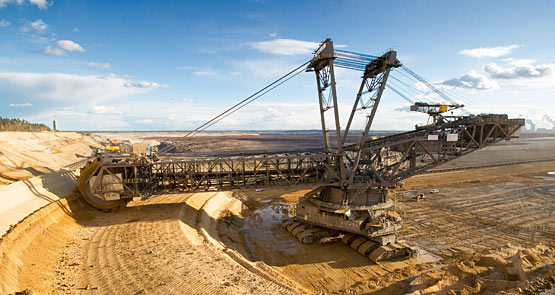
Ugly November. It was a miserable month for commodities and commodity-producing companies (like BHP) and countries such as Australia. As the US dollar rose and rose, the euro fell (because the US Federal Reserve will almost certainly tighten monetary policy this month with a rate rise, and the European Central Bank will further loosen its policy by cutting rates and/or expanding its huge spending program on Thursday night). But what’s this? The Aussie dollar firmed in November — by a tiny 1.3%, or thereabouts, to regain the 72.30 US cent mark on the last day of trading offshore. But rise it did. That wasn’t supposed to happen — not given the slide in our terms of trade last month and the crunching of key commodities like oil, gas, iron ore, coal, copper, gold and more. But oddly, the rise on the trade-weighted index was more than against the greenback — around 2.4% over November — thanks to our rise against the euro as well as the greenback. The currency’s strength last month will have been a talking point at today’s RBA board meeting in Perth. Temporary, yes, but watch to see what happens after the Fed meeting mid-month. — Glenn Dyer
Ugly, ugly red ink. November turned out to be a rotten month for commodities where red ink flowed like water. In fact, according to S&P Dow Jones Global Indices, 21 commodities ended November in the red, while only sugar, cotton and cocoa had gains. S&P’s key commodity index fell more than 7% last month. Iron ore lost around 14%, copper, more than 11%, oil, more than 10%, gold, 6.7%, silver, more than 9%. BHP shares lost more than 20% last month, thanks to the fall in iron ore, copper, oil and gas, but especially the Brazilian mine dam disaster on November 5 and its multibillion-dollar clean up and restoration bill. Rio Tinto shares fell 9.5%, which gives you an idea of the damage the mine dam disaster has done to the value of BHP shares. — Glenn Dyer
Private equity and crocodiles. Just as we were told in Peter Pan never to smile at a crocodile, so investors should never buy a company from private equity after they have finished their laughable restructuring and whipping it into shape. Why? Because they will eat your profits before you have had a chance to enjoy them. The whole idea of private equity buying companies that are badly performing and revitalising is a crock of rubbish. And you don’t have to look far from the ASX for a couple of prize examples where the private equity owners made millions selling the companies back to investors, who then watched their investment shed value like confetti at a windy wedding.
The most recent example was yesterday’s big loser on the ASX, Dick Smith, the country’s third-largest consumer electronics retailer (after Hardly Normal and JB Hi-Fi). Its shares are trading at distressed levels — they dropped 70% at one stage yesterday before closing with a daily loss of 57%. That was after the company abandoned a previous downgrade to earnings and revealed a $60 million write-down for unwanted stocks. The new guidance is “we don’t know”, which is a worry. At 28 cents a share, the company is worth just $66 million. — Glenn Dyer
All ours, say the crocs. Dick Smith was floated at $2.20 a share in late 2013 ($525 million value) by private equity group Anchorage, which paid Woolworths $94 million. In a recent report, Forager Funds Management described Dick Smith as “the greatest (legal) private equity heist of all time,” according to reports in the Fairfax Media papers (such as today’s Financial Review). Forager detailed how Anchorage’s cash commitment to its purchase price was just $10 million, and how it acquired Dick Smith by using $12.6 million of the cash in the company at the time of purchase, liquidating inventories and using the cashflow in the business to fund the outstanding payments to Woolworths. In other words, Forager claims $84 million of the purchase price came from Dick Smith.
Forager’s co-founder Steve Johnson was on the front page of this morning’s Financial Review and claimed Dick Smith was being “priced as a distressed stock”. Once Dick Smith listed, it had to rebuild its inventories (because it wanted to sell goods to the public), forcing it to run up debt for higher working capital needs. But Dick Smith is not the only example. Just look at Myer — sold for $4.10 a share in late 2009 by TPG, which then sent the money raised from the float offshore and away from any prying Tax Office eyes. Myer shares fell, and kept falling to their low of 83 cents a couple of months ago. They closed at $1.11 yesterday — that’s a loss of 73% from the float price. Nice one, TPG. But it helps you understand why more and more companies are telling private equity to go away; usually they are opportunistic and try and stampede a nervy board into doing a deal. Treasury Wine Estates told two private equity bids to go away at around $5.20 a share, and they closed at $7.57 a share yesterday. — Glenn Dyer







Crikey is committed to hosting lively discussions. Help us keep the conversation useful, interesting and welcoming. We aim to publish comments quickly in the interest of promoting robust conversation, but we’re a small team and we deploy filters to protect against legal risk. Occasionally your comment may be held up while we review, but we’re working as fast as we can to keep the conversation rolling.
The Crikey comment section is members-only content. Please subscribe to leave a comment.
The Crikey comment section is members-only content. Please login to leave a comment.